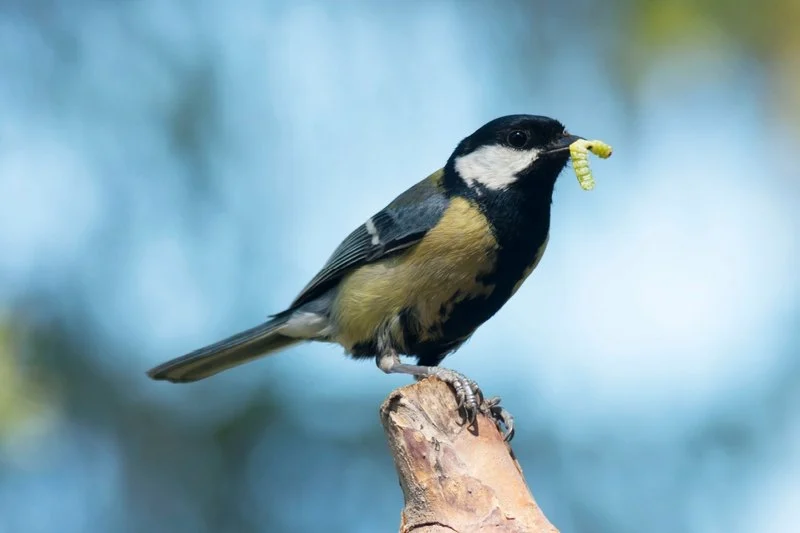
- 1. Why Pests Are Attracted to Bird Feeders
- 2. Common Pests Around Bird Feeders
- 3. How to Prevent Pests at Bird Feeders
- 4. Effective Strategies for Squirrel and Rodent Control
- 5. Keeping Bird Feeders Clean and Safe
- 6. What to Do if Pests Persist
1. Why Pests Are Attracted to Bird Feeders
Bird feeders are a great way to bring nature into your backyard, but unfortunately, they can also attract unwanted pests. The abundance of food, especially seeds, can be highly enticing for animals like squirrels, raccoons, rats, and even larger animals like deer. These creatures are naturally drawn to the easy food source that bird feeders provide, which can lead to a range of problems for homeowners.
Understanding why pests are attracted to bird feeders is the first step in taking control of the situation. Many pests are opportunistic feeders, and bird feeders offer a convenient and reliable food source, especially in areas where natural food is scarce during the colder months.

Main Line Exterminating
Bala CynwydMontgomery CountyPennsylvania
19 Bala Ave Suite 101, Bala Cynwyd, PA 19004, USA
2. Common Pests Around Bird Feeders
Several types of pests are commonly attracted to bird feeders. Here are some of the most common culprits:

Madison Termite and Pest Control, INC
Paint LickMadison CountyKentucky
456 Guynn Rd, Paint Lick, KY 40461, USA
2.1 Squirrels
Squirrels are perhaps the most notorious pests around bird feeders. Their acrobatic skills make it easy for them to access bird feeders, and they can easily knock them down or chew through the feeder to get to the seeds inside. Squirrels also hoard seeds, which can lead to a mess around your feeder.
2.2 Rodents
Rodents, such as rats and mice, are also attracted to bird feeders. These pests are often nocturnal, making them harder to spot, but they are attracted to the seeds and crumbs left on the ground beneath the feeders. Rodents can cause significant damage to your property, chewing on cables, furniture, and even insulation.
2.3 Raccoons
Raccoons are highly intelligent and opportunistic creatures that are attracted to the food at bird feeders. They are notorious for raiding feeders during the night, often tipping over containers and making a mess. Their ability to climb and open lids can make it difficult to keep them away.
2.4 Larger Animals
In rural areas, larger animals like deer and even wild boars may be attracted to the seeds in your bird feeder. While these animals are less common in urban areas, they can cause significant damage when they visit.
3. How to Prevent Pests at Bird Feeders
There are several steps you can take to reduce pest attraction to your bird feeders and maintain a peaceful, pest-free environment:
3.1 Use Squirrel-Proof Feeders
Squirrel-proof bird feeders are designed to make it difficult for squirrels to access the seeds. These feeders often include mechanisms that close off the seed compartment when too much weight is applied, such as a squirrel’s weight. Investing in a high-quality, squirrel-resistant feeder can help keep these pesky critters at bay.
3.2 Elevate Your Feeders
Positioning your bird feeders higher up, on poles or hangers, can make it more difficult for squirrels and other animals to reach them. Ensure that the feeders are at least 5 to 6 feet off the ground, and keep them away from tree branches or structures that could serve as a launch pad for squirrels.
3.3 Add Baffles to Feeders
Baffles are shields that can be added to poles or feeder posts to block squirrels and other pests from climbing up. Baffles are an effective way to prevent pests from accessing your bird feeders, especially when placed above and below the feeder. Choose a baffle that is large enough to make it difficult for animals to bypass it.
3.4 Avoid Overfeeding
Overfeeding your birds can attract unwanted pests. Instead of filling the feeder to the brim every day, fill it just enough to provide for the birds without leaving excessive seed on the ground. Emptying feeders in the evening can also help avoid attracting nocturnal pests.
4. Effective Strategies for Squirrel and Rodent Control
While squirrels and rodents are often the most challenging pests to control around bird feeders, several strategies can help keep them in check:
4.1 Use Specialized Rodent-Repellent Feeders
Some bird feeders come with built-in features designed to repel rodents. For example, certain types of feeders are designed with smaller openings that only allow smaller birds to feed, preventing larger rodents from accessing the seeds. You can also use seed mixes that contain ingredients that rodents find unappealing, such as hot peppers or safflower seeds.
4.2 Place Feeders Away from Trees
Since squirrels are expert climbers, placing feeders too close to trees or structures can make it easy for them to access your feeder. Position your feeder away from trees, fences, and other surfaces that could act as a bridge for pests.
5. Keeping Bird Feeders Clean and Safe
Maintaining a clean bird feeder is essential in reducing pest attraction. Here’s how you can keep your feeders clean and safe for the birds:
5.1 Regular Cleaning
Dirty feeders can harbor bacteria and attract pests. Clean your bird feeders regularly to ensure that seeds and suet do not build up and create a breeding ground for pests. Use mild soap and warm water to clean the feeder, and be sure to rinse it thoroughly before refilling it.
5.2 Dispose of Spilled Seeds
Seeds that fall to the ground can attract rodents and other pests. Use trays or catchers beneath your feeders to collect spilled seeds. This will help keep the ground around your feeder clean and reduce the chances of attracting unwanted visitors.
6. What to Do if Pests Persist
Despite your best efforts, pests may still find a way to access your bird feeders. If pests persist, consider using humane traps to catch and relocate animals like squirrels or raccoons. Alternatively, you can contact a professional pest control service to help manage the problem and prevent further damage to your feeders or home.
Remember that it’s essential to take a balanced approach when dealing with pests. While you want to discourage pests from raiding your bird feeders, it’s also important to remember that many of these animals are part of the natural ecosystem and should be dealt with humanely.
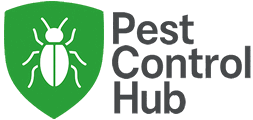
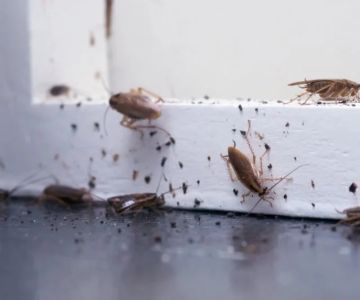


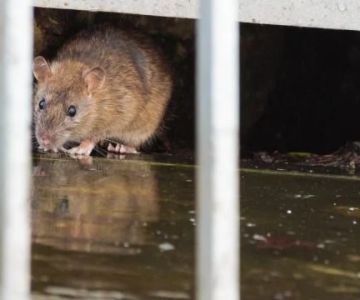
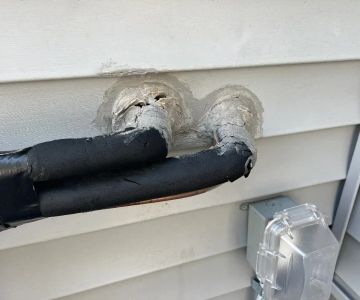
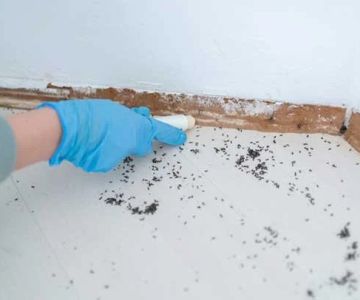
 Wildlife Resolutions4.0 (443 reviews)
Wildlife Resolutions4.0 (443 reviews) Pest Marshals of Toledo5.0 (2 reviews)
Pest Marshals of Toledo5.0 (2 reviews) LS Rodent Proofing & Pest Control Service5.0 (4 reviews)
LS Rodent Proofing & Pest Control Service5.0 (4 reviews) Best Termite & Pest Control4.0 (16 reviews)
Best Termite & Pest Control4.0 (16 reviews)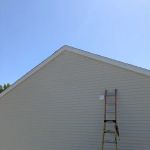 Varment Guard Wildlife Services5.0 (28 reviews)
Varment Guard Wildlife Services5.0 (28 reviews)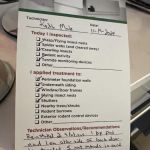 Pestban Inc4.0 (394 reviews)
Pestban Inc4.0 (394 reviews) How to Use Monitors to Detect Pest Entry: A Comprehensive Guide
How to Use Monitors to Detect Pest Entry: A Comprehensive Guide How to Predict Which Pests Will Invade Next – Smart Pest Forecasting for the U.S.
How to Predict Which Pests Will Invade Next – Smart Pest Forecasting for the U.S. How to Conduct a Pest Risk Assessment at Home – Expert Guide
How to Conduct a Pest Risk Assessment at Home – Expert Guide How to Block Pest Entry Around Deck Joists: Effective Solutions
How to Block Pest Entry Around Deck Joists: Effective Solutions How to Safely Use Fumigation Methods: A Comprehensive Guide for Homeowners
How to Safely Use Fumigation Methods: A Comprehensive Guide for Homeowners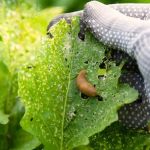 Why Pests Are More Active After Rain: Understanding the Link Between Weather and Pest Behavior
Why Pests Are More Active After Rain: Understanding the Link Between Weather and Pest Behavior